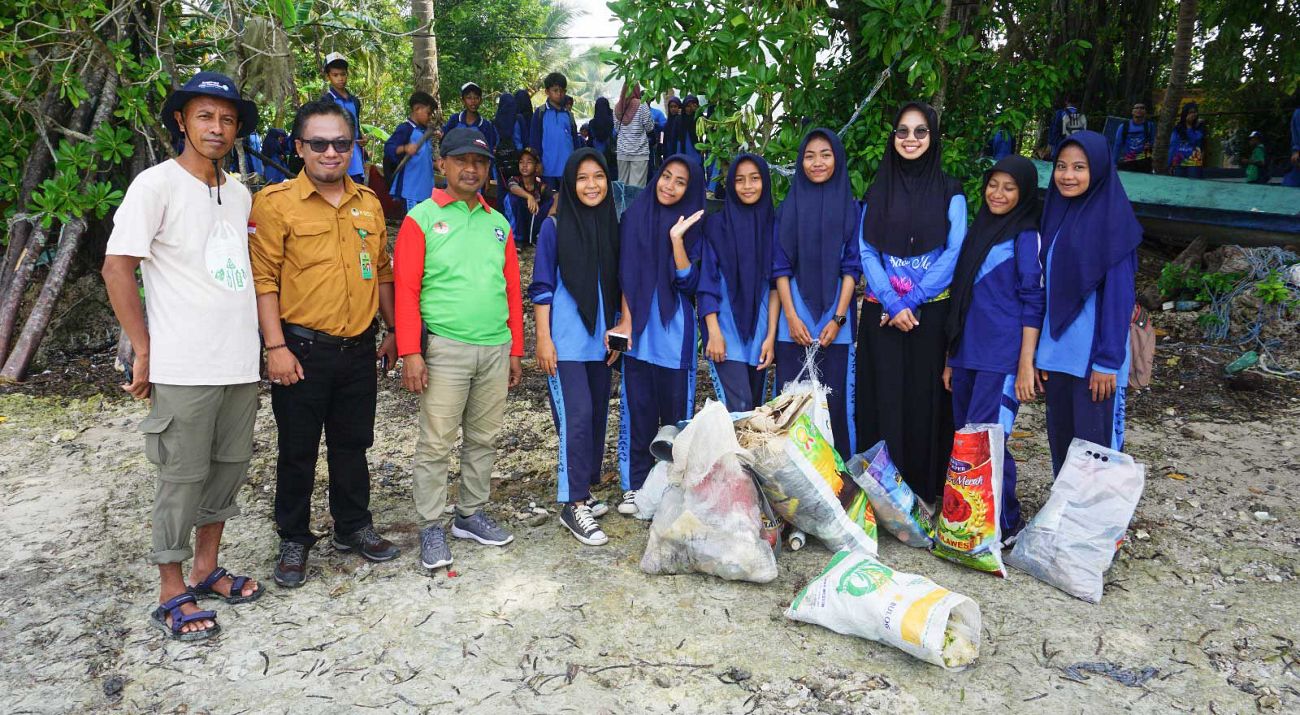Wakatobi Regency Government, Wakatobi National Park, and YKAN Hold Environmental Education to Commemorate World Wetlands Day
Media Contacts
-
Adia Puja Pradana
Communications Specialist Ocean Program YKAN
Email: adia.pradana@ykan.or.id
In commemoration of World Wetlands Day, which falls on February 2, 2024, Yayasan Konservasi Alam Nusantara (YKAN), together with the Wakatobi National Park and the Wakatobi Regency Environmental Service, held environmental education on wetlands for students in Wangi-Wangi Selatan District, Wakatobi Regency, Southeast Sulawesi.
Environmental education involving around 130 SMP Negeri 1 Wangi-Wangi Selatan students was held in Liya Mawi Village, Wangi-Wangi Selatan District, on February 3, 2024. The activity, which was aligned with the implementation of the Independent Learning Curriculum, was filled with a brief introduction about Hari World Wetlands, the material on the function of coastal ecosystems for life, game activities "Environmental Warriors Protecting Wakatobi Mangroves," and actions to clean up rubbish in coastal areas and the surrounding sea.
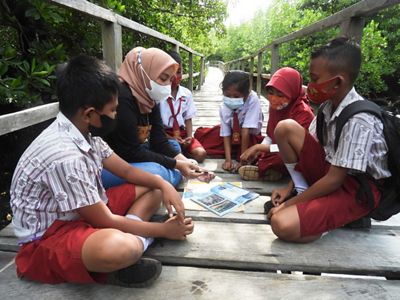
This environmental education activity aligns with the World Wetlands Day 2024 theme established by the UN, namely 'Wetlands and Human Wellbeing.' The theme highlights how all aspects of human wellbeing are linked to wetland health, both physical, mental, and environmental.
"With this activity, we hope that students as the next generation will gain an understanding of protecting and sustainably utilizing the natural resources around them, including coastal ecosystems, which include seagrass, mangroves, and coral reefs. "We also hope that there will be a change in behavior from the community to maintain and utilize the existence of wetlands for the welfare of humans and the environment," hoped the Head of the National Park Management Section (SPTN) I Wangi-Wangi, Wakatobi National Park Office, Union.
"This environmental education activity aims to increase the younger generation's knowledge about the importance of preserving wetlands. "This can foster students' motivation and enthusiasm for the conservation of wetland ecosystems, especially seagrass, mangroves, and coral reefs in the surrounding areas," said the Head of the Waste Division of the Wakatobi Regency Environmental Service, La Ode Agu.
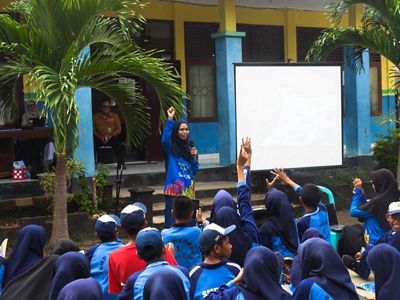
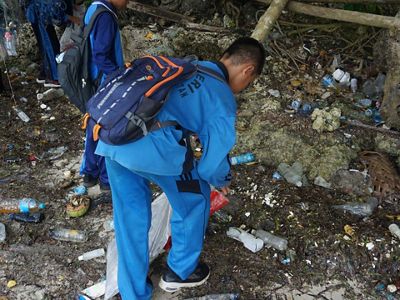
"This activity is perfect for students because they can better understand the importance of wetland ecosystems in the surrounding environment. "Apart from that, students also gain valuable knowledge and experience because they can interact directly with nature," explained the Principal of SMP Negeri 1 Wangi-Wangi Selatan Adeliya Alim Sabani.
The importance of maintaining wetland ecosystems
Indonesia has the largest wetland ecosystem in Asia, with a wetland area of around 40.5 million hectares, or approximately 20% of Indonesia's area. In the Wakatobi Regency itself, eight essential resources are conservation targets for the Wakatobi National Park, and three of them are mangrove, seagrass, and coral reef areas, which are included in the wetland ecosystem in coastal areas.
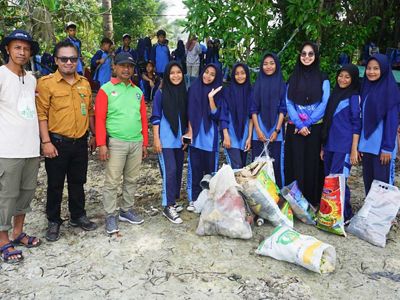
However, public awareness of the importance of the functions and benefits of wetlands still needs to be improved. Apart from climate factors, land conversion is one of the main factors in disrupting wetland ecosystems. Sustainable management of wetlands must be carried out in a participatory and collaborative manner between communities, institutions, and stakeholders.
"Mangroves, seagrass, and coral reefs play an important role in maintaining coastal ecosystems, including protecting coastal areas from seawater abrasion, breeding grounds for various types of marine biota, reducing global warming, and as an economical source for the community. "YKAN, together with the Wakatobi National Park and the Regional Government of Wakatobi Regency, continue to monitor and evaluate programs in conservation areas, including for wetland areas on the coast," concluded YKAN Wakatobi Program Coordinator La Ode Arifudin.
Yayasan Konservasi Alam Nusantara (YKAN) is a scientific-based non-profit organization that has been present in Indonesia since 2014. With the mission of protecting lands and waters as life support systems, we provide innovative solutions to realize the harmony of nature and humans through effective natural resource management, prioritizing a non-confrontational approach, and building a network of partnerships with all stakeholders for a sustainable Indonesia. For more information, visit ykan.or.id.


